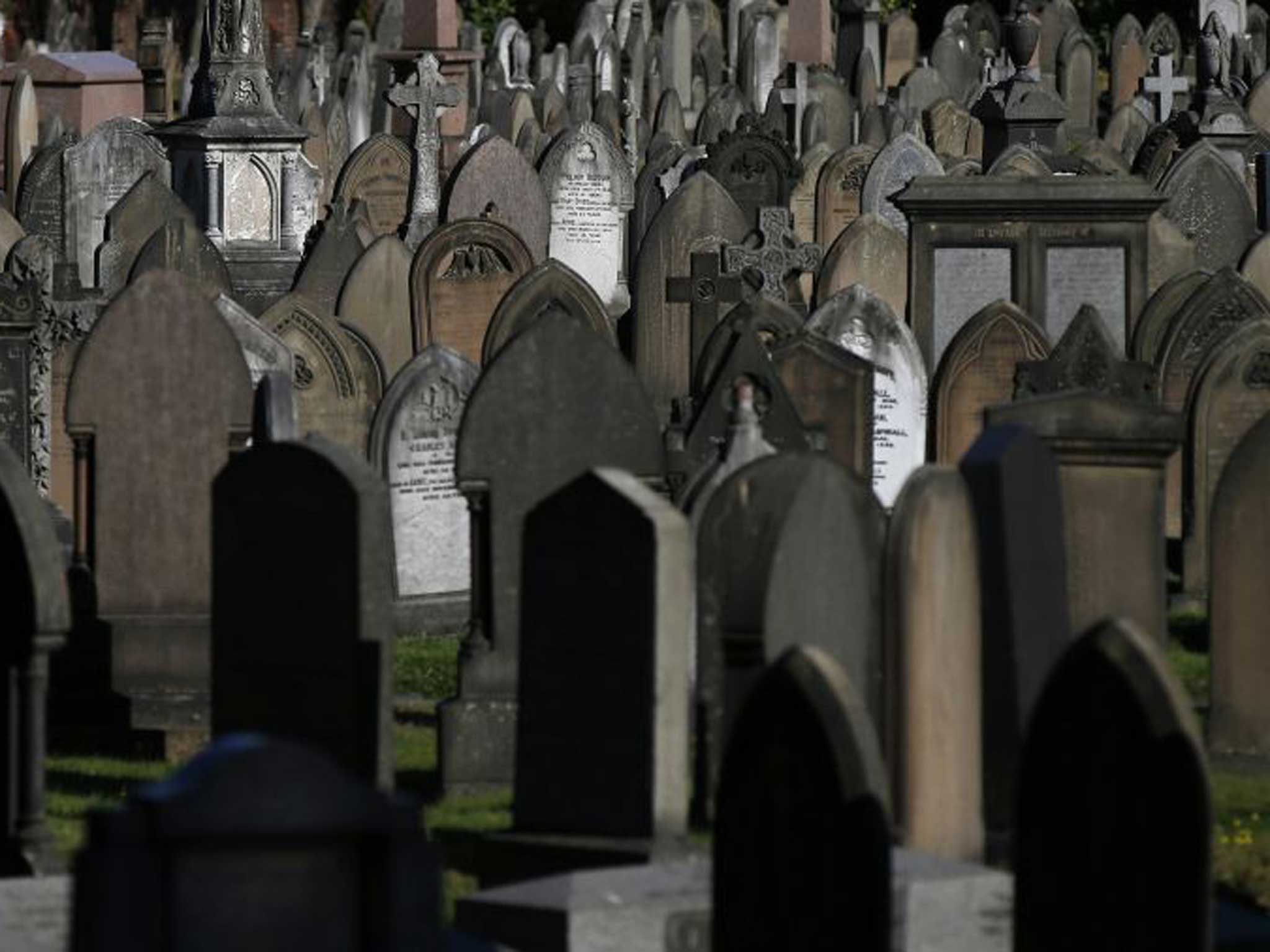Nearly half of British cemeteries will be full in 20 years time

Your support helps us to tell the story
From reproductive rights to climate change to Big Tech, The Independent is on the ground when the story is developing. Whether it's investigating the financials of Elon Musk's pro-Trump PAC or producing our latest documentary, 'The A Word', which shines a light on the American women fighting for reproductive rights, we know how important it is to parse out the facts from the messaging.
At such a critical moment in US history, we need reporters on the ground. Your donation allows us to keep sending journalists to speak to both sides of the story.
The Independent is trusted by Americans across the entire political spectrum. And unlike many other quality news outlets, we choose not to lock Americans out of our reporting and analysis with paywalls. We believe quality journalism should be available to everyone, paid for by those who can afford it.
Your support makes all the difference.Calls are being made for grave plots to be "re-used" in a bid to tackle the current shortfall in spaces for burying the dead.
Research by the BBC's local radio stations has found that more than nearly half of cemeteries (44 per cent) could be full within the next two decades, with a quarter full within the next decade.
An academic is now calling for a change in legislation to allow graves older than 75 years to be reused, in order to avert a "crisis".
Some local authorities, such as Tandridge district council, said they had already run out of space for new graves. Cannock Chase District Council, according to the data, has just over a year before they run out of land for new graves.
The cost of dying has risen to an average £7,622 - a 7.1 per cent increase on last year, according to a report earlier this month by insurer Sun Life Direct.
The figure, which includes costs such as probate, headstones and flowers as well as the funeral, varies significantly across the regions, with London the most expensive at £9,556. Wales was the least expensive with an average cost of £6,096.
The cost of a funeral has also increased by 5.3 per cent since last year to £3,456, or 80 per cent higher than in 2004.
Burial fees have risen by 69 per cent since 2007 and cremation fees by 51 per cent, according to the report.
The average burial now costs £3,914 and cremation £2,998.
Dr Julie Rugg, of the University of York's cemetery research unit said the survey highlighted how "desperate" the situation was across the country.
Speaking to the BBC, she said: “It's not just a London or a big town problem. Even small parish councils are wondering how they are going to cope when land runs out,” she said.
"We spend a lot of time thinking that's a problem, something we don't want - it brings money back into our cemeteries, it brings people back into our cemeteries," she told BBC Breakfast.
"Cemeteries become vibrant places then, where you can meet people, not these places that are a little bit abandoned, a little bit sad and lonely and neglected.
"When you go on to the continent, cemeteries are often full of people. That is not a bad thing."
“I don't know how much more evidence there needs to be on the table before the Ministry of Justice appreciates that this is a crisis.”
The Ministry of Justice said the case "was under constant review".
Join our commenting forum
Join thought-provoking conversations, follow other Independent readers and see their replies
Comments